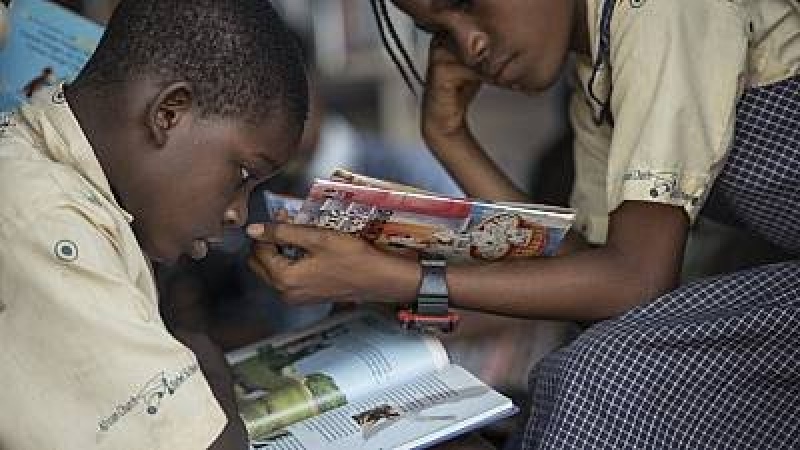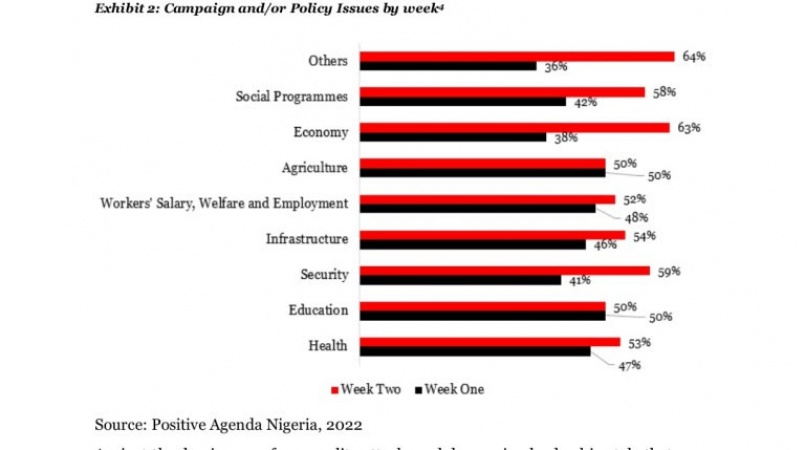Tackling Nigeria's out of school children menace
Posted by Editorial | 3 years ago | 1,696 times

By: Ahmed Iyanda and Sulaimon Babalola
One in every five of the world’s out-of-school children is in Nigeria-UNICEF
Up to 18.5 million children in Nigeria are out of school, 60 percent of whom are girls- that is over 10 million girls are out of school.
All children, no matter where they live or what their circumstances, have the right to quality education.
However, The United Nations Children's Fund(UNICEF) says, "One in every five of the world’s out-of-school children is in Nigeria.
Even though primary education is officially free and compulsory, about 10.5 million of the country’s children aged 5-14 years are not in school. Only 61 percent of 6-11 year-olds regularly attend primary school and only 35.6 percent of children aged 36-59 months receive early childhood education."
With the nation’s current population of over 200 million, there is a huge demand for learning opportunities translating into increased enrolment. This has created challenges in ensuring quality education since resources are spread more thinly, resulting in more than 100 pupils for one teacher as against the UNESCO benchmark of 35 students per teacher and culminating in students learning under trees for lack of classrooms.
"In the north of the country, the picture is even bleaker, with a net attendance rate of 53 percent. Getting out-of-school children back into education poses a massive challenge."
Nigeria is a country with many diversity ranging from landmass, ethnic, culture, language etc. It's of no doubt that the togetherness has been well managed right from being protectorates.
The menace of out of school children didn't start today but the daily increase of having more children without Education call for urgent intervention. Several factors contributed to this problem, school and society are intertwined and one can't survive without the other.
There are certain technical steps that must be taken in tackling out of school children menace in Nigeria. First, it is time to recognise that any region desirous of securing the future of its people must invest in education. It is the children we fail to educate today who will return tomorrow to terrorise us.
This is more urgent in the north where it is agreed that historical underdevelopment in Western education is responsible, more than the diversity in religious loyalties, for the social imbalance between the North and South.
Another enhancing factor influencing out of school children is poverty; poverty is the root with which other factors relied on. As a Nation, the level of poverty is alarming, many are wretched to the extent of not having cloth nor roof on their head. Parents that can't feed their children nor afford the basic necessities of life will see nothing right or worth it about schooling because they are fighting for survival. Parents' level of education also have a lot to do in determining how they tend to value school.
Child health condition is of great and major contributor to the number of out of school children, academic failure, peer influence, child labour and wealth being also contribute to the menace.
Some factors are school related, for instance, low academic performance, distance to school, school environment, punishment by teachers, children's dislike of school and students interest or disinterest influence school dropout.
Furthermore, the consequences of all the above listed factors contributing to the out of school children have a great effect on individuals and society at large. It encourages teenage marriage and pregnancy in females that don't attend school leading to teen parenting with lower paternal quality. Statistics have shown that out of school children easily perpetuate crime and other vices in the society by engaging in illegal and risky activities such as drug and sex-related problems, violence and gambling are also very common in them.
National development is highly implicated by out of school children because it enhances lack of adequate and appropriate manpower in future; the working environment needs a certain level of education to secure the employment, out of school children are exposed to violence and menial jobs that affect good child upbringing . There is a probability of shortage of experience and poor relationship to the community and society at large, above all is that out of school children easily fall into depression.
We cannot leave children behind. They are the future of Nigeria. To tackle this, everyone including the government, private sectors, NGOs, among others should support and invest in teachers and getting children into schools.
The solution to this menace is to improve the living standard of parents which is inevitable to reduce the number of out of school children. Violence should be reduced in the school to create a friendly environment for learners.
Also, the government should make counseling services available to parents and children. Recruitment of professional teachers could be a great remedy for an enabling learning environment.
The Nigerian government needs to step up their game by reviving productivity, educating our children, especially the girl-child, and creating employment opportunities. This will gradually eradicate crimes and restore national stability.







